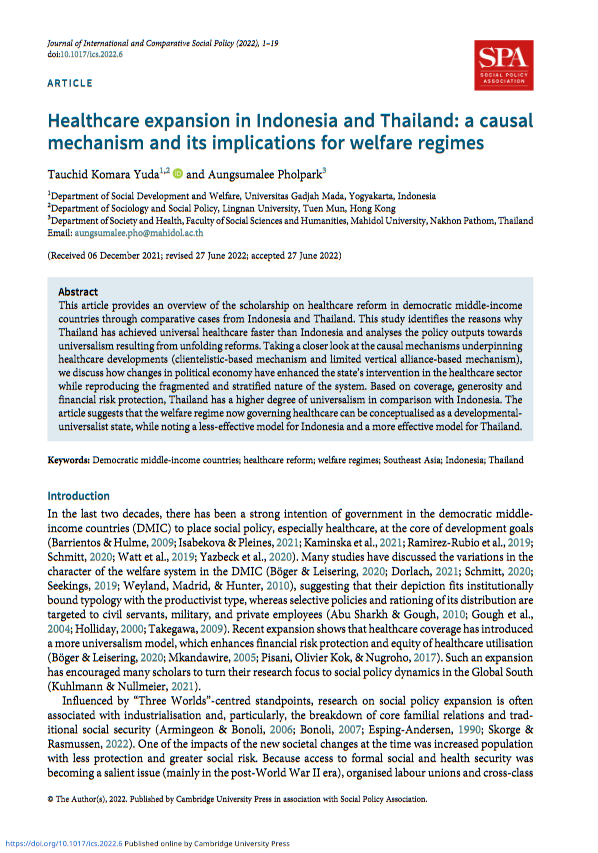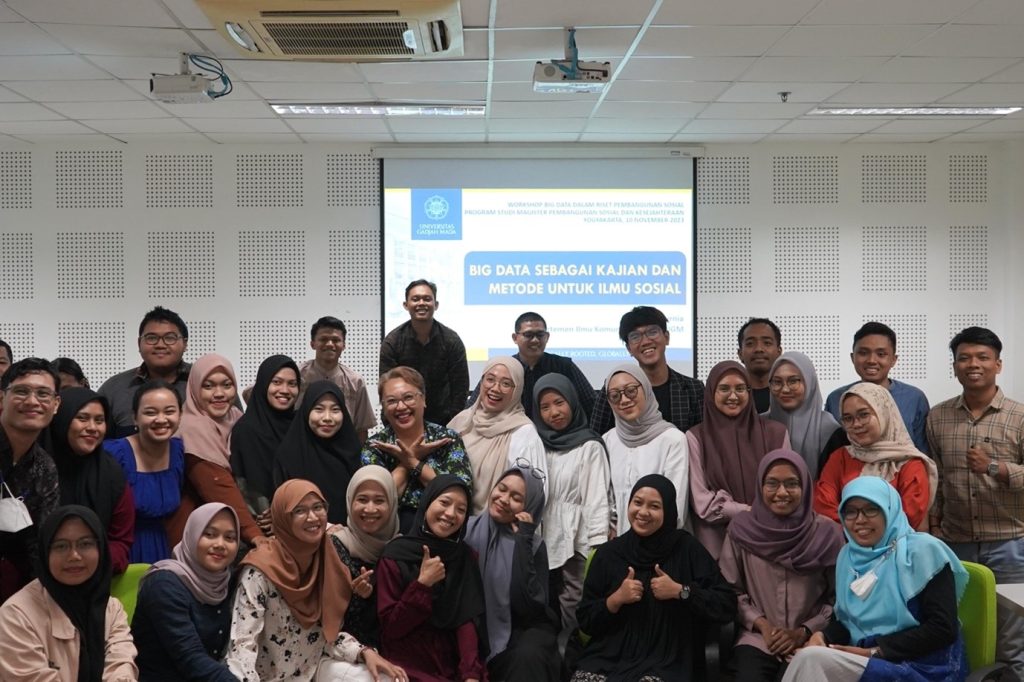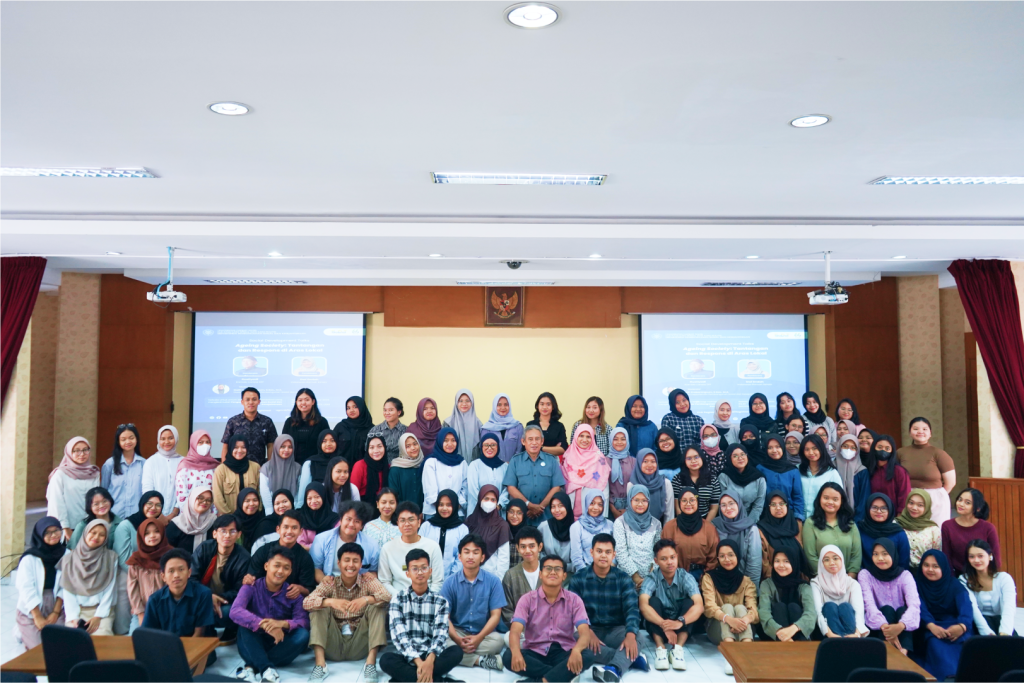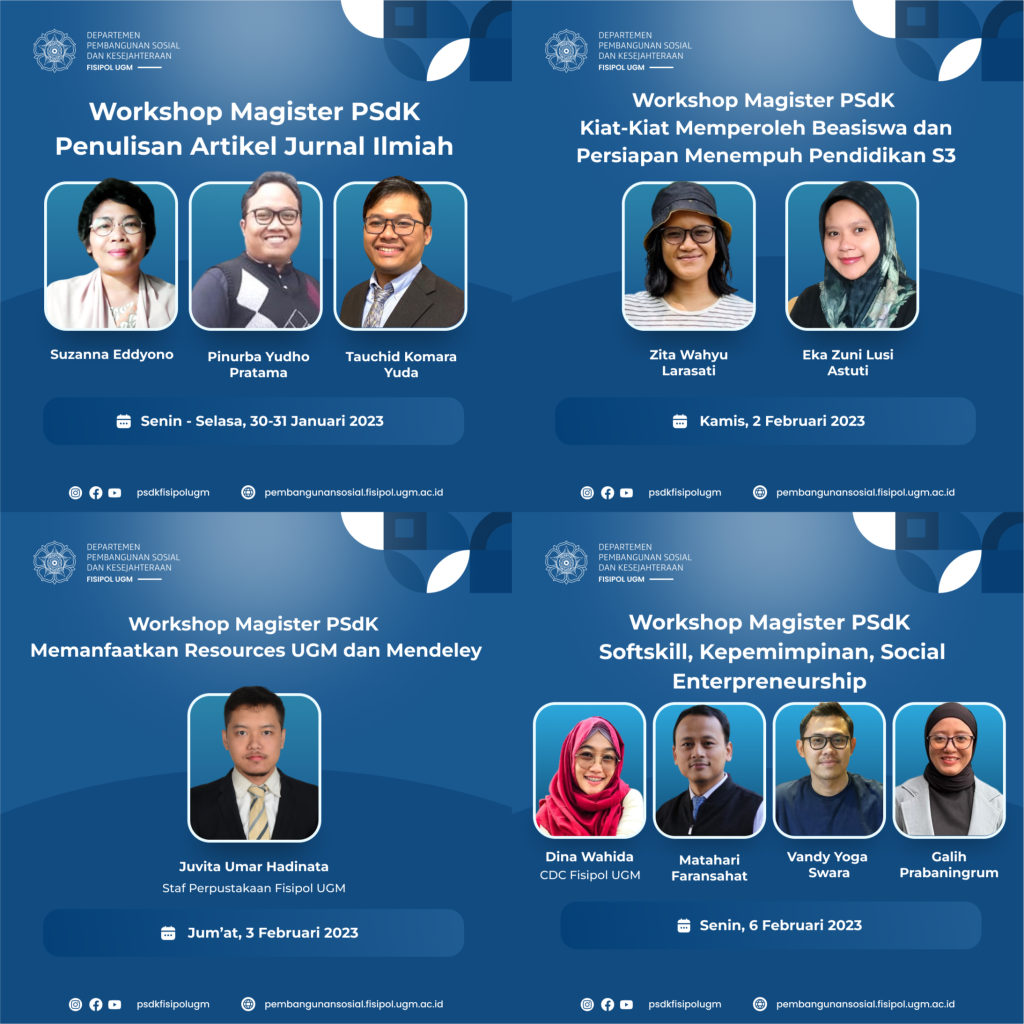Tauchid Komara Yuda dan Aungsumalee Pholpark
Journal of International and Comparative Social Policy
Page 1-19 | Published online: 14 July 2022
Abstract
This article provides an overview of the scholarship on healthcare reform in democratic middle-income countries through comparative cases from Indonesia and Thailand. This study identifies the reasons why Thailand has achieved universal healthcare faster than Indonesia and analyses the policy outputs towards universalism resulting from unfolding reforms. Taking a closer look at the causal mechanisms underpinning healthcare developments (clientelistic-based mechanism and limited vertical alliance-based mechanism), we discuss how changes in political economy have enhanced the state’s intervention in the healthcare sector while reproducing the fragmented and stratified nature of the system. Based on coverage, generosity and financial risk protection, Thailand has a higher degree of universalism in comparison with Indonesia. The article suggests that the welfare regime now governing healthcare can be conceptualised as a developmental-universalist state, while noting a less-effective model for Indonesia and a more effective model for Thailand.
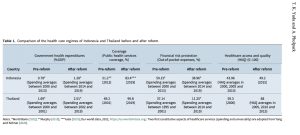
Yuda, T.K. and Pholpark, A. (2022). Healthcare expansion in Indonesia and Thailand: a causal mechanism and its implications for welfare regimes. Journal of International and Comparative Social Policy, 1–19. https://doi.org/10.1017/ics.2022.6
Artikel selengkapnya dapat diakses melalui tautan berikut.
